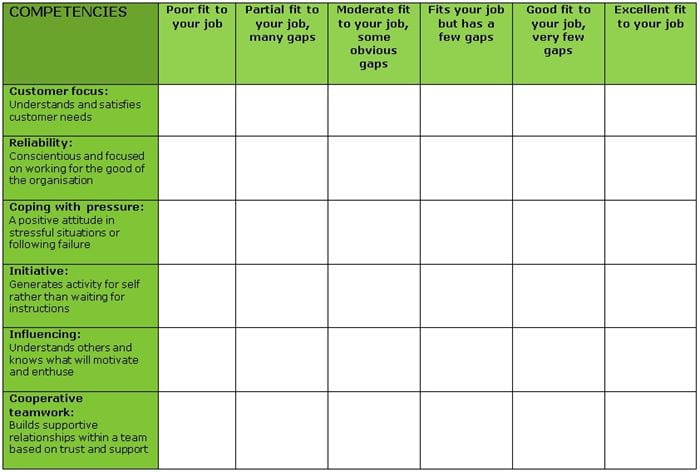How to structure those reference requests
sitecore\Robert McHenry - Chairman at OPP

References on job candidates are a very valuable source of information, and yet they are being requested less and less by private sector employers. The main reasons are a fear on the part of the referee (or the referee’s employer) that if they give a candid reference, they might be sued; and scepticism on the part of the new employer about the value of any references they might obtain.
Eliciting references in a systematic way mitigates against these concerns. Working out which competencies the job holder must have in order to do the job well is a good start. There is a very useful list of competencies here.
From this list, select the six that are most important to the role, and don’t be tempted to include more. (You will find OPP’s 16PF Job Profiling Kit helpful here – it provides a structured exercise to focus on the most important competencies for a particular job role). Next, create a form by listing your chosen six along with a short definition of each one in a column down the left side of a page, with a scale of “fit” to each competence along the top. The following table gives an example of this.
Vacancy: Sales person

The wording in the competencies boxes should be chosen carefully. You are going to send the referees a short description of the job (maximum 400 words) and ask them to use the table to assess the candidate’s fit to “your job” (ie the job you are seeking to fill). I like six point scales because they prevent people using the ‘sitting on the fence’ point in the middle.
This approach has several advantages.
- By defining the job role, you are making it clear to the referee what you want to know, and you are creating construct validity for your measure
- By asking about “fit”, you are making it easier for the referee to be more candid. Just because the candidate does not fit your particular job, does not mean that they have no strengths
- By structuring the reference request, you are likely to increase its measurement reliability and, at the same time, its predictive validity. Remember, an assessment report of this kind cannot be valid if it does not have measurement reliability
- It is easier and quicker for the referee to use the structured form than the conventional reference letter format where two or three paragraphs have to be carefully drafted
The reference form can now be supplemented with the candidate’s name and any information you would like to have about the referee such as their job title and the context in which they have observed the candidate’s behaviour. You should also include a sentence giving brief details of the working conditions you will be providing and explain that for the job to be done well, the six listed competencies are essential. You might offer to hear the referee’s ratings over the telephone. This can have advantages for both potential employer and referee.
Here are some additional tips:
- Do not readily accept the list of referees a candidate offers you. Job seekers never volunteer anyone who will say something negative about them. Ask for the names of people who have supervised them directly in the very recent past.
- Always get the candidate’s consent to contact the referees you want to talk to. (Their reasons for refusing to let you may be informative).
- If there is more than one shortlisted candidate for the same job, use an identical reference request format and form for all shortlisted candidates, in order to avoid accusations of unfairness.
- Never allow yourself to get so keen on a candidate that you think it will not be necessary to take up references about their work performance.
Academic research suggests that conventional written references have poor predictive validity (this may be one source of an employer’s scepticism about references); but when references are structured in the manner set out here, their validity improves significantly and close to the level of the structured interview.
(NOTE: You can further enhance your selection processes by using the same competency model to assess candidates’ personality, such as with the 16PF Competency Report or the Sirius system, both of which provide an interview guide for each candidate that is tailored not only to the competencies of the job role, but also their personality).